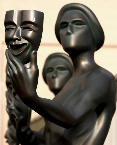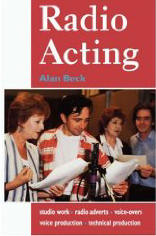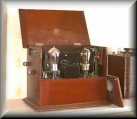From Felner, Mira, Free To Act. An integrated approach to acting, New York: Hawthorn, 1990
Note from Alan Beck: I teach an acting course, and I strongly recommend Felner's Free To Act.
All of these terms are fully explained in my book - Beck, Alan, Radio Acting, London: A & C Black (1997) ISBN 0-7136-4631-4
Some key terms (originally for the stage - so adapt for radio drama.)
Conflict
'Conflict comes in many forms. Most often characters are pitted against each other because of opposing goals and desires. Sometimes an individual must battle against an external force or situation.'
' you must overcome an obstacle to achieve your end. Because your objective is always conceived with the idea of winning a conflict, objectives are always expressed in terms of an active verb that can spur you to action and victory. '
Obstacles
'.... obstacles to goals and desires ... intensify the conflict, strengthen our resolve, and increase the energy of the struggle. Dramatic tempo and rhythm change accordingly. From this driving force of conflict and obstacle the inner life of the actor's work is created.
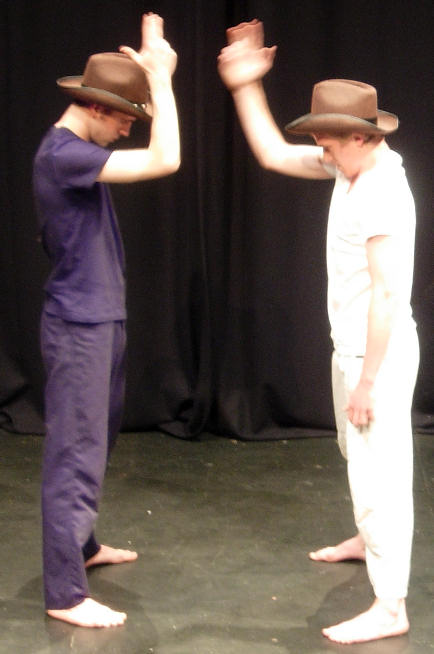
Personalization
'... make the audience care what happens to your character. You achieve this by internalizing your character's objectives-making your character's needs and goals your own. We call this personalizing a role. .... Because theatre compresses life, you must play your conflict as if crisis were imminent. You must feel an urgency that directs all your energy toward achieving your goals and winning your struggle. On stage, where a lifetime of meaning is compressed into a two-hour play or a two-minute scene, you must make every moment count. '
Action
'If conflict is the driving force of the dramatic situation, then action is the means of resolving the conflict. The choice of action is a consequence of who you are and what you want. '
Choice
The ability to make effective and creative action choices defines your merit as an actor. ...The range of choice available to you as an actor is determined by:
1. The freedom of your imagination.
2. The ability of your body and voice to give effective expression to your most daring choices.
Imagination and the 'Magic If'
'If you cannot make the dramatic situation real for you there is no basis from which to act. But if you believe in your circumstances, your actions will have credibility. Stanislavski called this the 'Magic If', behaving as 'if' you were really living within the imaginary conditions of the stage. It is 'magic' because the power of such a leap of faith gives truth to the dramatic reality. ... It enables you to let your homework on given circumstances propel you into a role. If you believe in the given circumstances, you can live the part as if it were really happening.'
Acting in the dramatic situation
'An actor's work is therefore twofold: an intellectual process and a psychophysical action. Acting students must train their minds as they train their bodies, learning to feel action in the written word and to think with their bodies.....The more integrated our thoughts, feelings, and bodies, the more easily the process of perception-choice-action occurs. This psychokinetic coordination is the focus of actor training. We strive to hone our awareness and sensitivity so the process is energized and quickened. ....If your body is inhibited in any way, then no matter how well you have understood the dramatic situation, you will be unable to act to realize the resolution of the conflict that is the essence of the drama. If you cannot correctly analyze dramatic material, then your physical technique will be incorrectly applied. An actor's mind and body must work in creative collaboration. '
Understanding Acting Technique
'Each skill is learned separately, but the final product is the union of technique, understanding, and inspiration we call art.'
Acting Manuals
Felner, Mira, Free to act. An integrated approach to acting,
New York: Hawthorn, 1990
Hagen, Uta, Respect for acting, USA: Macmillan, 1973
Cohen, Robert, An Introduction to Acting, 1978, London: Mayfield
To Summary of what the actor must achieve, from Felner, Free To Act:
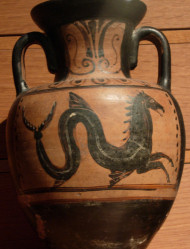
Level One: Your first script: 'The Ark' production and script for seven actors and seven production team Level Two: Your second Script: 'The Ouija Board' Level Three: Acting : objective-choice-action Acting : some key terms for the actor and director Level Four: Creative scripting and production exercises - hook and signposting, & montage, & music Level Five: How to produce a TRAIL & What is signposting? & Some advice about radio drama directing as a student Level Six
Directing the Monologue Questions for the Director and Actor Instructions for the Director More Instructions for the Director Instructions for the Actor Exercise Scripts
Level Seven : Script: 'We Go With' Level Eight
Scripts: Dragon Colourlands The Egg-stremists Warm Up Act
|
|
